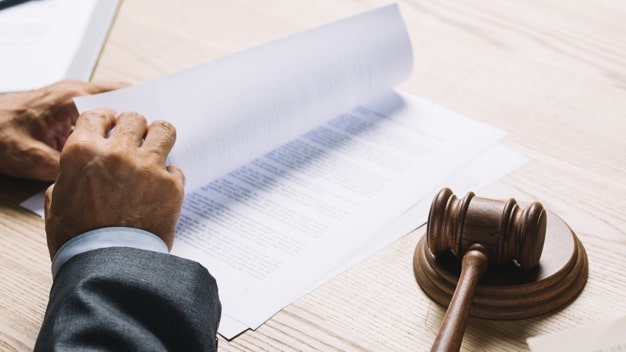Corporate legal liability refers to a corporation’s legal accountability for any illegal activities done by its workers.

Corporate legal liability refers to a corporation’s legal responsibility for any illegal activities — or, in certain situations, failure to act — perpetrated by its workers. If the activities were taken to benefit the firm, if the company was careless, or if bad management produced problems, the corporation may face prosecution and penalty.
Table of Contents
What Exactly Is Corporate Liability?
The following are examples of corporate legal liability:
Fraud allegations in which a firm employee is accused of malfeasance, infractions such as water pollution, and trespassing.
Employees, officers, and corporate directors engage into contracts and responsibilities on behalf of the company.
Contracts made prior to the incorporation of the business Following incorporation, the company has legal responsibility for these contracts.
In the case of business torts, a company is liable for the length of time the workers or directors were employed, depending on the kind of tort and the predicted outcome. As a general rule, corporations will escape accountability for deliberate torts involving workers and directors. The company will be held accountable if the tort was something the corporation’s directors might have predicted, or if the corporation benefited financially from the tort. This relates to a tort committed with purpose by an employee.
In most cases, punitive damages will not be awarded if the employee caused the tort. If the company condoned the tort, it may be liable for punitive damages.
Criminal Liability of Corporations
Corporations may be held criminally accountable in specific cases. Instead of incarceration, the company may be dissolved, or employees, directors, or officers of the corporation may face derivative criminal culpability. In circumstances of human rights violations, the culpability extends to any unlawful activity committed by the corporation. When actions violate the following laws, they may be criminalised:
International humanitarian law.
Workplace security.
Environment.
Consumer protection.
Anti-trafficking.
The laws are set in place to safeguard individuals from violations of their human rights and to offer remedies in such cases. It is criminal for businesses and people to disregard these rules. Unfortunately, the instances that have been brought to court do not always result in the defendant businesses being held responsible for the infractions. Furthermore, victims may not always see a favourable settlement or eradication of human rights breaches.
Difficulties in Prosecuting Human Rights Violations
Two significant elements contribute to difficulties in prosecuting persons accused of human rights violations:
The difficulty that comes with prosecuting a company rather than a person.
Corporations’ power and influence on governments are closely linked to their economic effect. This effect reduces the likelihood of new laws being enacted to pursue these abuses.
Authorities may not prosecute in places where there is existing law owing to a lack of expertise with these cases and a desire to reduce the negative economic effect. Governmental regulations may further reduce the possibility of prosecution since they prohibit businesses from being charged criminally. If the illegal action does not take place in the United States, the state’s criminal law will be applied, removing jurisdiction and the capacity to prosecute.
The burden of evidence is the major issue if prosecution is conceivable. The standard of proof in criminal proceedings is substantially greater than in civil ones. Processing and interpreting the evidence may take too much time or money, or the authority may lack the necessary capabilities.
Examples of Corporate Criminal Cases
Corporate criminal cases occur all throughout the globe, and many of them involve illicit transactions between firms and unfriendly governments. The following are some examples:
Libya is receiving surveillance equipment.
The Democratic Republic of the Congo is receiving army vehicles.
The Democratic Republic of the Congo is used for money laundering.
Human rights abuses by the Kaweri Coffee Plantation and the Ugandan government
Corporations have also faced criminal prosecution as a result of their actions:
Five Blackwater security employees have been charged with torture and war crimes.
Criminal charges have been filed against the Chiquita for making payments to paramilitaries.
